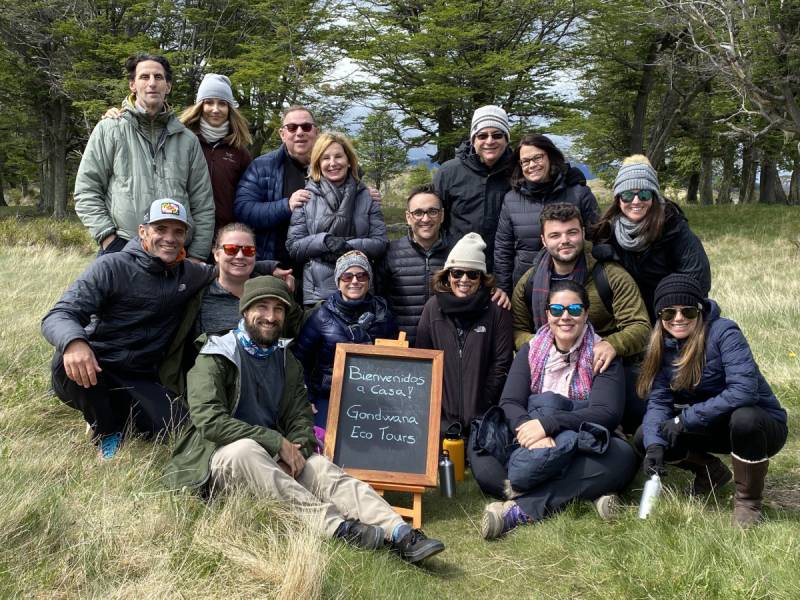Exploring Daily Life In Tanzania
Download Travel Details >PRIVATE & SMALL GROUP TOURS TO THE WORLD'S BEST DESTINATIONS
Join Us For A Safari In Tanzania

How Tanzanian Children Fit into Family Life in Tanzania
If you’re planning a trip to Tanzania, consider connecting with locals to learn more about the Tanzanian culture as well as daily life in Tanzania. Many tour companies, like Gondwana Ecotours, can schedule culturally immersive experiences for your during your trip abroad. These types of experiences can be a great way to get away from crowds and learn more about how people truly live their lives when tourists are not around.
The Role of the Family in Tanzanian Culture
Tanzania has one of the youngest populations in the world. More than 64 percent of the nation’s population is under the age of 24. This is good news for the country, and government agencies are working to support Tanzanian children with educational opportunities as well as employment once they finish school. Unlike America, however, the structure of the Tanzanian family is quite different. Tanzanian culture has played a role in shaping the family. Here are some key points to remember if you are visiting a Tanzanian family:
- In Tanzania, it’s considered normal for nuclear and extended family members to live together. Cousins often refer to each other as siblings, and aunts and uncles are called mother or father.
- In Tanzanian culture, the father assumes the traditional role as head of the family and is considered the bread winner – especially in rural areas. The mother still plays an essential role, however, managing the household, overseeing childcare, cooking, and farming. Note: In urban areas, both parents may work outside the home.
- Tanzanian children are highly valued within the family structure, and many families have a large number of children.
- Daily life in Tanzania involves sharing resources like food, labor, and other necessities, especially in rural areas where these resources can be scarce.
- Community support is integral to Tanzanian culture, with people from the same community showing up to support each other during events like weddings or funerals.
What is Daily Life Like for Tanzanian Children?
For Tanzanian children, daily life in Tanzania revolves around home and school. At home, it is common for Tanzanian girls to help their mothers cook for the family. However, it is a hallmark of Tanzanian culture that boys are generally not allowed in the kitchen and would not be expected to cook!
Teenagers in Tanzania are encouraged to pursue their activities in school, but tribal customs and the importance of family mean students will typically spend the majority of their time with family members pursuing family activities. Some teens help with chores as part of daily life in Tanzania, but most focus on their schooling.
Unlike American children, very few Tanzanian children have pets like dogs or cats. In general, animals are not allowed inside the house and are fed outside. Dogs are primarily used as guard dogs, especially in rural areas, and are not considered to be pets or companions like they are in America and Europe.
Food in Tanzanian Culture
Daily life in Tanzania is punctuated by meals! Food plays an important part in family life and community, and meals are traditionally a family affair. In most Tanzanian households, the father is served first. Women and children are served after the men have received their portions. Common foods eaten by Tanzanian children and their families include:
- Rice (Especially pilau, or rice mixed with a variety of spices)
- Bananas
- Ugali (a porridge made from corn, millet, sorghum, or cassava)
- Mangoes
- Guavas
- Pineapples
- Jackfruit
- Breadfruit
- Oranges
- Roasted meat (chicken, goat, lamb)
- Kitumbua (coconut pancakes)
It is common for families in Tanzania to eat together, seated on mats on the floor. Hands are always washed before eating, and only the right hand is used for eating. A gesture of hospitality toward guests includes serving food. However, be careful before you dig in – unlike some cultures, Tanzanian culture views taking a deep whiff of your food before eating extremely offensive!
The Importance of School for Tanzanian Children
The Tanzanian school system is modeled on the British system of education. For Tanzanian children, school lasts 13 years. The primary level runs from years 1 to 7, while the second level runs from Form 1 to Form 4. The Advanced level of schooling is called Forms 5 and 6. By age 7, every child in Tanzania is required to be enrolled in a primary-level school. In rural areas, many children leave school after year 7 to help with family farms and do not complete their primary education.
Between the end of Form 4 and the start of Form 5, Tanzanian children have a 9-month break. During this time, they are awaiting the results of the national exams they took at the end of Form 4, and to find out where they will be placed going forward. During this time, many students seek out private computer courses or tutoring, while others look for work.
Like America, public education in Tanzania is free. However, families must pay for uniforms, books, and other expenses, which can place a heavy financial burden on them. Families who are well off often skip public schools, preferring instead to send their children to private schools. Options include private boarding schools or day schools for both primary and secondary students.
Reading, Writing, and Arithmetic: School Subjects in Tanzania
Daily life in Tanzania is similar to that in America! Tanzanian children are expected to go to school, where they study a curriculum similar to that studied by students in other countries. These subjects include:
- Mandatory subjects for primary students: Swahili, English, Civics, Biology, Math
- Mandatory subjects for advanced students: Physics, Chemistry, Biology, and Arts (or Humanities-based subjects
Once a student enters advanced classes, they are encouraged to choose classes based on their strengths and the field of study they want to pursue in Forms 4 and 5. That explains why Tanzanian children can choose a curriculum that focuses more on science-based courses, while others choose subjects that are more geared toward the arts.
For many families, daily life in Tanzania has been increasingly impacted by computers. Although many families do not have computers in the home, Tanzanian children can access computers at internet cafes and are computer literate. Computer subjects are viewed as very important, although many schools do not have computer labs. Savvy students know this is a great barrier to employment, so many seek out work experience outside school hours to gain practical computing skills.
What to Expect in Tanzania!
Tanzania is twice the size of California and is best known for its stunning wildlife. However, it is also home to a unique Tanzanian culture, which is worth exploring during your trip. Enjoy the safari, but ask your guide to schedule an experience that will help you better understand daily life in Tanzania through the eyes of a Tanzanian family. Take a trip off the beaten path and see what most people don’t see on their safari tour in Tanzania – real, authentic life for Tanzanians.

